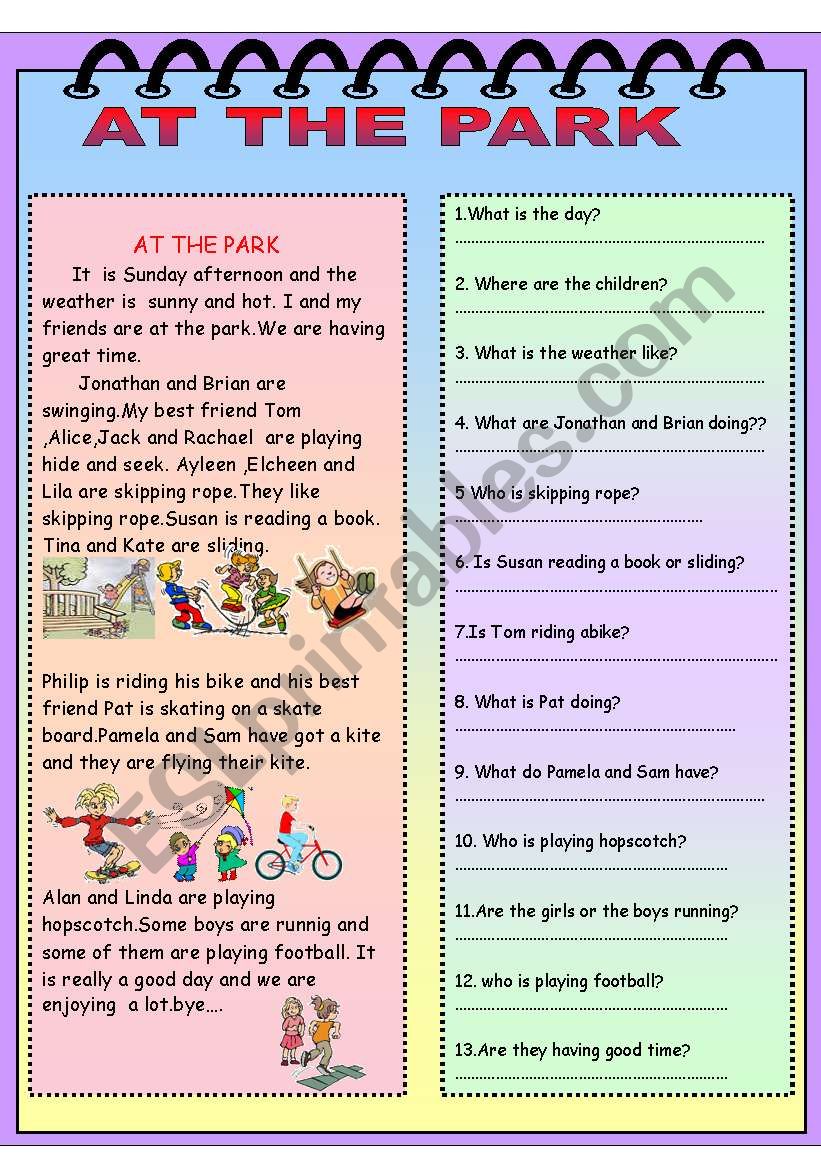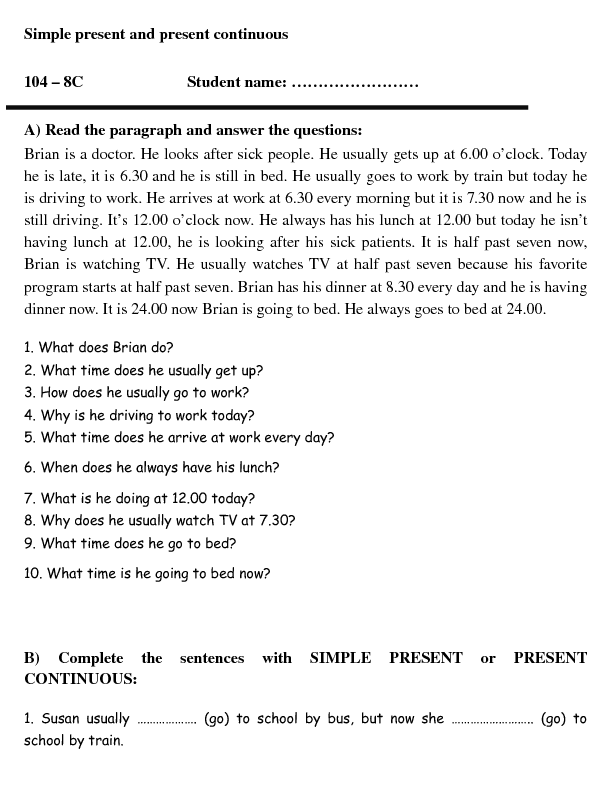PRESENT CONTINUOUS
PRESENT CONTINUOUS
OBJECTIVE
By the end of the lesson, students should be able to express ideas in present continuous orally and written way
WARM UP

GRAMMAR
Present continuous
| I am | working |
| You are | playing |
| He is | talking |
| She is | living |
| It is | eating |
| We are | staying |
| They are | sleeping |
We use the present continuous to talk about:
- activities at the moment of speaking:
I'm just leaving work. I'll be home in an hour.
Please be quiet. The children are sleeping.
- future plans or arrangements:
Mary is going to a new school next term.
What are you doing next week?
Present continuous questions
We make questions by putting am, is or are in front of the subject:
Are you listening?
Are they coming to your party?
When is she going home?
What am I doing here?
Present continuous negatives
We make negatives by putting not (or n't) after am, is or are:
I'm not doing that.
You aren't listening. (or You're not listening.)
They aren't coming to the party. (or They're not coming to the party.)
She isn't going home until Monday. (or She's not going home until Monday.)
Stative verbs
We do not normally use the continuous with stative verbs. Stative verbs include:
- verbs of thinking and feeling:
| believe dislike know like | love hate prefer realise | recognise remember suppose think (= believe) | understand want wish |
- verbs of the senses:
| appear feel | look seem | smell sound | taste |
- others:
| agree be | belong disagree | need owe | own possess |
We normally use the simple instead:
I understand you. (NOT Iam understandingyou.)
This cake tastes wonderful. (NOT This cakeis tastingwonderful.)
Level: intermediate
We also use the present continuous to talk about:
- something which is happening before and after a specific time:
At eight o'clock we are usually having breakfast.
When I get home the children are doing their homework.
- something which we think is temporary:
Michael is at university. He's studying history.
I'm working in London for the next two weeks.
- something which is new and contrasts with a previous state:
These days most people are using email instead of writing letters.
What sort of clothes are teenagers wearing nowadays?
What sort of music are they listening to?
- something which is changing, growing or developing:
The children are growing up quickly.
The climate is changing rapidly.
Your English is improving.
- something which happens again and again:
It's always raining in London.
They are always arguing.
George is great. He's always laughing.
Note that we normally use always with this use.
Taken from
ACTIVITIES
WRITING

READING

LISTENING
http://soundgrammar.com/learn/L3-CEFR-A2/L3-03-present-continuous.htm
SPEAKING
Choose five students and apply the following survey
What are you doing this year to improve yourself?
What do you think your best friend is doing right now?
Are you reading any interesting books these days? Which ones?
What TV shows are you watching now?
Think of your favorite celebrity. What do you think they are doing right now?
Who are you hanging out with a lot these days?
What projects are you working on this week?
What are you studying these days?
Show your partner a picture on your phone. Describe what is happening in the photo.
What is your favorite sports team? How are they doing this season?
Comentarios
Publicar un comentario